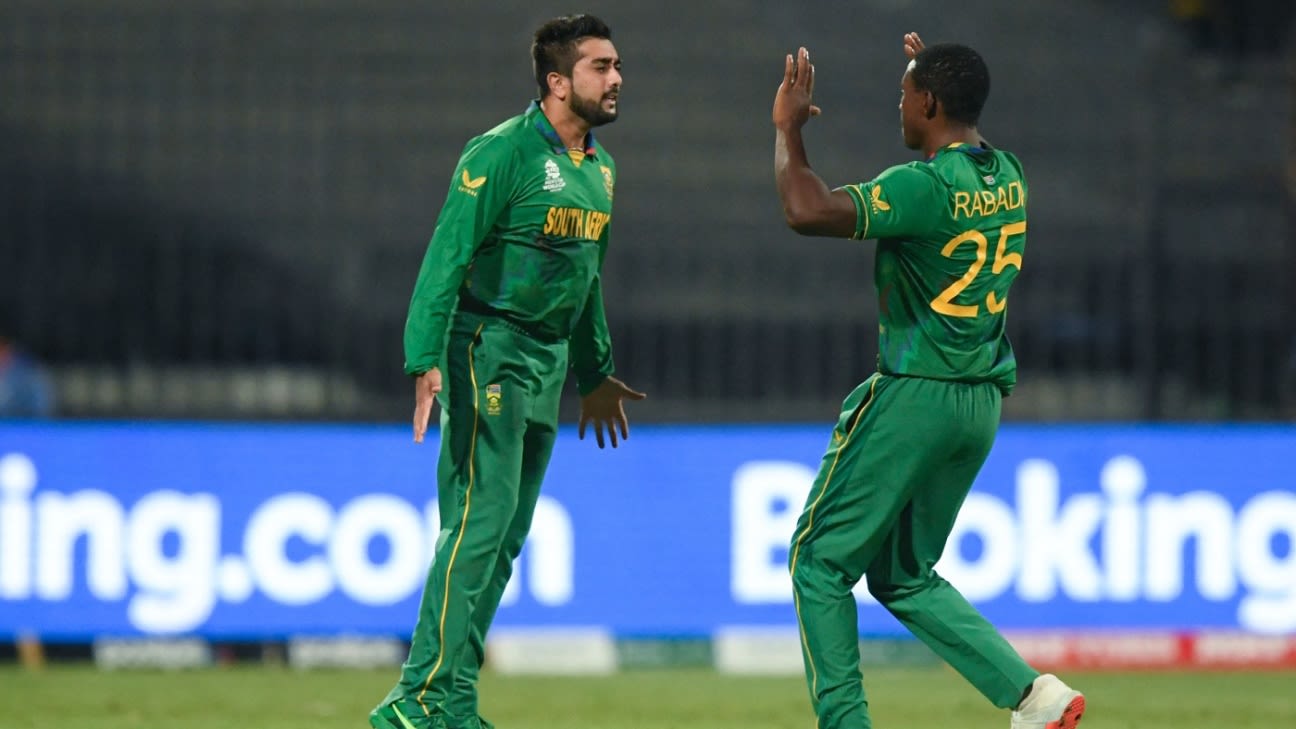Sluggish chase against Bangladesh proves costly, but Boucher proud of team’s revival
South Africa scored 118 for 9 in that opener against Australia, and very nearly defended it. Then, they rallied to chase 144 against West Indies, 143 against Sri Lanka and 85 against Bangladesh, but it took them 13.3 overs to get those runs. By contrast, Australia, the team who finished above them on NRR, chased 74 in 6.2 overs against the same opponents. If South Africa had beaten Bangladesh inside eight overs, all other things being equal, they would have leapfrogged Australia.
But Boucher explained, it was not as simple as just the numbers. “Chasing a small total against Bangladesh – people can maybe look at that and say we should have gone harder there. That was the intention. But, we lost three wickets on a wicket that was going all over the shop and unfortunately, ifs and buts don’t count now.”
Although Boucher hinted that having the teams divided into two groups skewed the balance of the tournament, he accepted NRR as the yardstick by which they are measured. “We knew what the rules were before,”he said. “As long as there is clarity around there, you’ve got to play what the rules are. Guys are chatting, it’s not only us, about what a good competition is – where everyone plays everyone. But I’m not here to make those calls. We knew what the rules were. We didn’t pass the test.”
“We are improving. We can look at the results. Since we were given a directive that it’s not just about getting games of cricket out there, it’s about results as well, before West Indies, guys have played really well and played good cricket,” he said. “Guys have upskilled. We’ve been learning how to play different situations as well and we’ve got a lot of confidence, but it’s not the finished product.”
Crucially, Boucher believes South Africa have turned a corner when it comes to crunch situations. “Every game we played was under pressure. That’s one thing we haven’t done well in the past – played big games, pressurised games,” he said. “It’s a young side, we are still developing. We are heading in the right direction. We need a bit of luck and a bit of good fortune to go our way. Hopefully we can put something in the trophy cabinet soon.”
How soon is the question on most South Africans’ minds and the answer is always maybe next time. Under Boucher, who is contracted until the 2023 ODI World Cup, there are two more opportunities, especially as South Africa’s performance at this tournament has likely taken the heat off the incumbent coach.
Now that South Africa are returning home, to a busy summer that starts with a full series against India, Boucher hopes the headlines will be for the right reasons. “This team is in a very good space,” he added. “They are very strong and together and hopefully that is reflecting in our performances and hopefully people can come and see that for themselves when we are back home.”
Firdose Moonda is ESPNcricinfo’s South Africa correspondent
